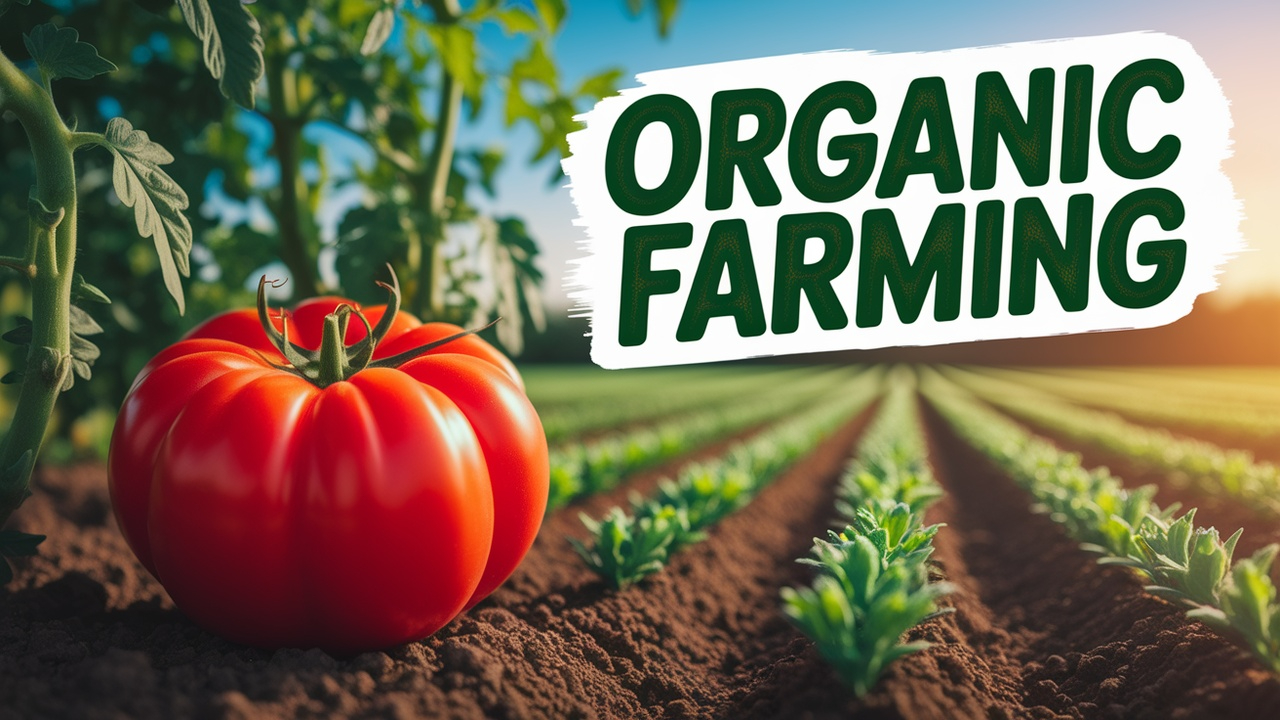
This comprehensive course provides in-depth knowledge and practical skills necessary for successful organic farming. Participants will learn about organic farming principles, soil health, pest management, and sustainable agricultural practices, culminating in a certification that validates their expertise in the field.
Course Levels
-
Level 1: Introduction to Organic Farming
This level introduces the foundational concepts of organic farming, including its principles, benefits, and the regulatory framework governing organic agriculture.
-
Level 2: Soil Health and Management
In this level, participants will explore soil health, its importance in organic farming, and various soil management techniques to enhance fertility and structure.
-
Level 3: Sustainable Crop Management
This level covers sustainable practices for growing crops organically, including planting strategies, pest management, and harvesting techniques.
-
Level 4: Organic Pest and Disease Management
Participants will learn about the identification of common pests and diseases in organic farming and the organic methods to manage them effectively.
-
Level 5: Organic Livestock Management
This level focuses on the principles and practices of raising livestock in an organic manner, including animal welfare and organic feed requirements.
-
Level 6: Advanced Organic Farming Techniques
This level delves into advanced techniques and innovative practices in organic farming, such as agroecology, permaculture, and agroforestry.
-
Level 7: Marketing and Business Management for Organic Farms
This level addresses the business side of organic farming, including marketing strategies, financial management, and understanding consumer preferences.
-
Level 8: Certification and Compliance
The final level prepares participants for the organic certification process and the ongoing compliance required to maintain organic status.
Course Topics
-
Agroforestry Practices
# Agroforestry Practices Agroforestry is a sustainable land-use system that integrates trees and shrubs with crops and livestock to create a more diverse, productive, and sustainable agricultural eco...
-
Selecting Appropriate Crops
# Selecting Appropriate Crops Selecting the right crops for a specific area is crucial for successful organic farming. This process involves understanding various factors that influence crop performa...
-
Organic Pest Control Methods
# Organic Pest Control Methods Organic pest control methods are essential components of sustainable crop management, allowing farmers to protect their crops without relying on synthetic chemicals. Th...
-
Organic Fungicides and Insecticides
# Organic Fungicides and Insecticides Organic farming emphasizes the use of natural inputs and processes to manage pests and diseases. Understanding organic fungicides and insecticides is crucial for...
-
Marketing Organic Products
# Marketing Organic Products ## Introduction Marketing organic products involves more than just selling food; it encompasses a holistic approach to promoting the values, benefits, and sustainability ...
-
Financial Management for Farmers
# Financial Management for Farmers Effective financial management is crucial for the sustainability and growth of organic farms. This section will cover the fundamental aspects of managing finances i...
-
Soil Fertility Management
# Soil Fertility Management Soil fertility management is a critical aspect of organic farming that focuses on maintaining and enhancing the soil's ability to support plant growth. Healthy soil is the...
-
Understanding Soil Composition
# Understanding Soil Composition Soil is a complex and dynamic medium that plays a crucial role in organic farming. Understanding soil composition is essential for maintaining soil health, optimizing...
-
Health Management and Disease Prevention
# Health Management and Disease Prevention Organic livestock management emphasizes the health of animals and the prevention of diseases as a fundamental aspect of sustainable farming. In this section...
-
Understanding Plant Diseases
# Understanding Plant Diseases Plant diseases are a significant concern in organic farming, as they can adversely affect crop yield and quality. This topic will explore the causes, symptoms, types, a...
-
Principles of Organic Livestock Farming
# Principles of Organic Livestock Farming Organic livestock farming is a crucial component of sustainable agriculture, promoting animal welfare, environmental health, and the production of high-quali...
-
Principles of Organic Agriculture
# Principles of Organic Agriculture Organic agriculture is a holistic approach to farming that emphasizes sustainability, biodiversity, and the health of ecosystems. It is based on several core princ...
-
Identifying Common Pests
# Identifying Common Pests In organic farming, understanding and identifying common pests is crucial for effective pest management. This knowledge allows farmers to implement appropriate control meas...
-
Agroecology Principles
# Agroecology Principles Agroecology is an integrated approach that combines the principles of ecology with agricultural practices. It aims to create sustainable farming systems that enhance biodiver...
-
Animal Welfare Standards
# Animal Welfare Standards Animal welfare is a critical aspect of organic livestock management, ensuring that animals are treated with respect and care throughout their lives. This topic covers the k...
-
Maintaining Certification Status
# Maintaining Certification Status Maintaining certification status is critical for any organic farming operation. This ensures compliance with standards set by certifying organizations and regulator...
-
Organic Amendments and Fertilizers
# Organic Amendments and Fertilizers Organic amendments and fertilizers play a crucial role in enhancing soil health, fertility, and overall ecosystem sustainability. This section will delve into the...
-
Record Keeping and Documentation
# Record Keeping and Documentation Effective record keeping and documentation are essential components of organic farming, particularly for those seeking certification and compliance with organic sta...
-
Compliance with Organic Standards
# Compliance with Organic Standards Organic farming is governed by a set of standards that ensure that products are grown, processed, and handled according to specific practices that maintain environ...
-
Harvesting and Post-Harvest Handling
# Harvesting and Post-Harvest Handling Harvesting and post-harvest handling are critical stages in sustainable crop management, particularly in organic farming. Proper techniques not only ensure the ...
- And 20 more topics...